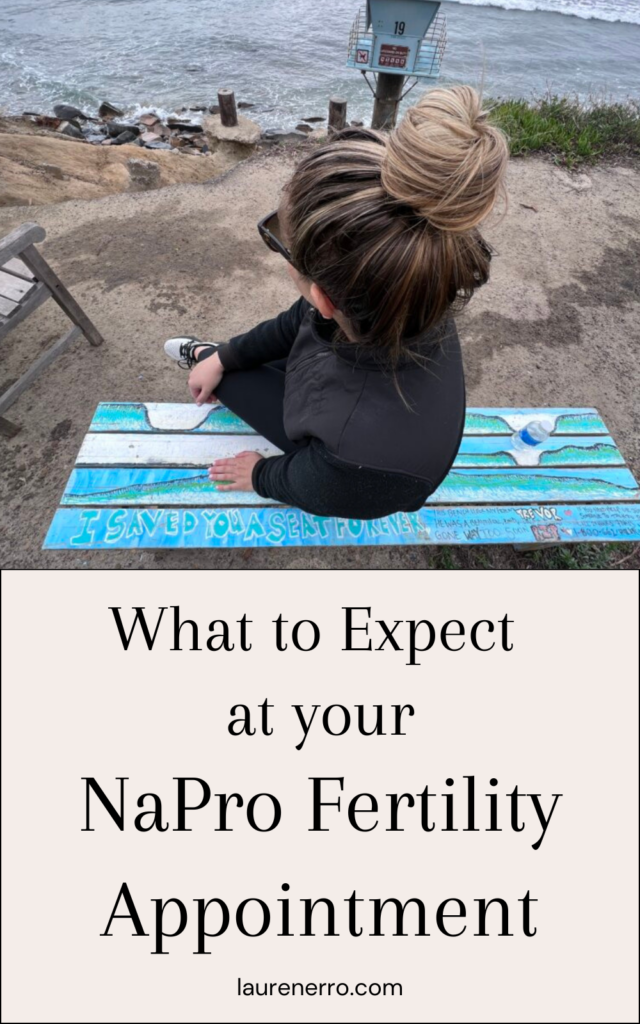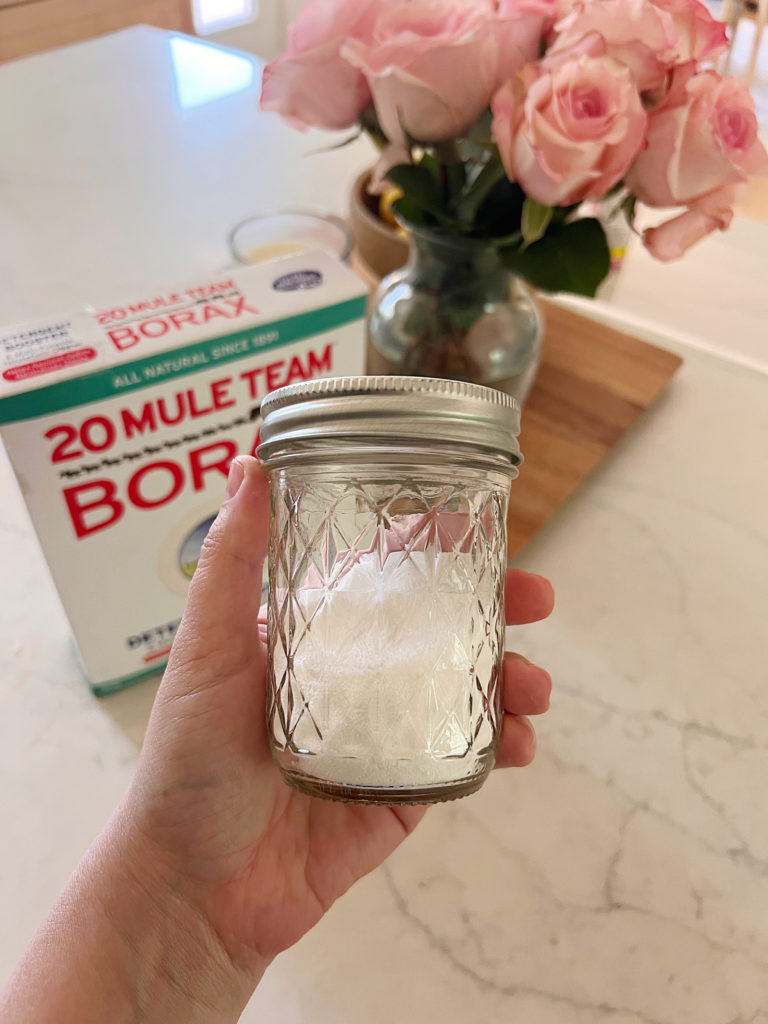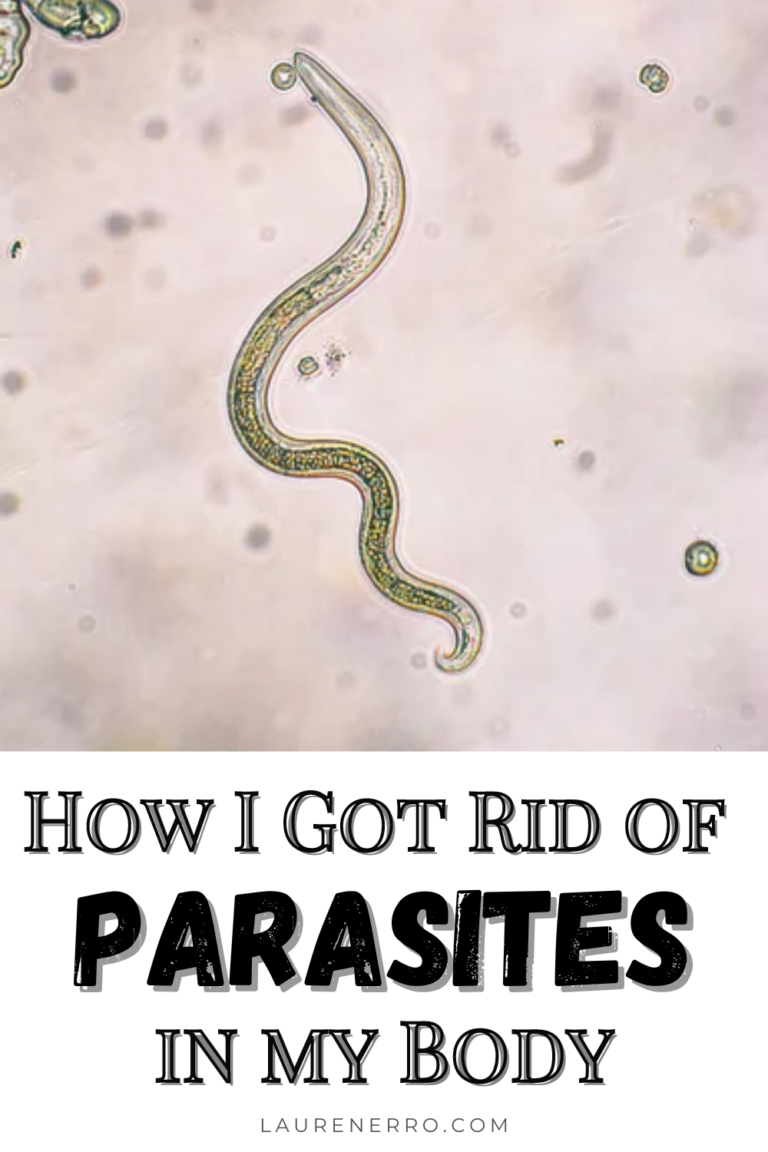What to Expect at your NaPro Fertility Appointment
I saw a NaPro Fertility Specialist and I’m feeling optimistic for the first time since my miscarriage last January! If you’re new here I have a separate blog post about the miscarriage of my first pregnancy, if you want details. After that traumatic experience, I decided I didn’t want to ever go through that again if I could avoid it so I went on a deep dive to figure out if everything in my body was ok.

I’ve discovered I have low progesterone and Hashimoto’s (according to functional doctors) and normal progesterone and thyroid levels (according to conventional doctors). I’ve found the last year of testing, spending thousands of dollars, and not really seeing any results very confusing and frustrating. I went to my OB last week for my annual and asked her about everything. I told her I’m not sure if I’m ovulating based on my Premom test strips and she told me she’s never heard of the Premom app and doesn’t like test strips. She said since my period is mostly normal I’m ovulating day 14-16… She told me to get Steve’s sperm tested and see a fertility doctor since we’ve been trying again for six months. I decided to look for a more holistic fertility practitioner and made an appointment with a NaPro specialist.
What is NaPro?
NaProTECHNOLOGY is a medical system that monitors and maintains a woman’s gynecologic and reproductive health in a way that cooperates with her normal reproductive cycle. It utilizes the Creighton Model FertilityCare System, a standardized method of monitoring the menstrual and fertility cycles. With Creighton Model charting, a woman makes daily observations and records changes in objective biomarkers of her cycle, such as external cervical mucus and bleeding patterns. The Creighton Model chart serves as a key component of a comprehensive diagnostic evaluation of an infertile couple and helps to properly time diagnostic tests to undercover the ovulatory and hormonal defects that may be present.
Medical NaPro treatments are directed toward restoring the normal functioning of the menstrual and fertility cycles with medications specifically timed with the cycle. Treatments often involve medications to improve ovulation or the hormone levels in the woman’s cycle. These medications support the hormonal function of the cycle and improve egg quality, endometrial receptivity, and cervical mucus to promote spontaneous conception. Ovulation induction with oral and injectable medications can also be used when ovulation disorders are present. Additionally, husbands are often treated with medications to help improve sperm count or quality.
Why did I choose NaPro?
Whenever I go to a conventional doctor I feel like I’m being gaslit. You go in with your issue and they check you and say everything is fine. I’ve experienced this for years with joint pain, acne, weight gain, and now fertility. I found it extremely frustrating and decided it was time for me to dig deeper. I lean toward a more holistic lifestyle (organic food, avoiding seed oils when possible, clean beauty, and home products) so it made sense that my doctors would be more holistic too. I don’t have a primary care doctor and haven’t for years! Even my gynecologist is a trained midwife (I didn’t see her at last week’s appointment- I saw a traditional Nurse Practitioner because my regular nurse was booked 2 months out).
How did I find my NaPro doctor?
I had no clue what NaPro was until a few of my followers on Instagram told me they were about to start IVF with their standard OB and fertility clinics and they decided to get second opinions with a NaPro doctor. Many of them had years of struggling with fertility and were able to get pregnant and give birth to healthy babies without the need for IVF. Obviously, this isn’t always the case but they know of my more holistic ways and said I should give it a try.
My frequency doctor recommended I get NET Therapy at this place in Franklin, TN called FIAT Health. That is a blog post for another day (I’m obsessed with NET Therapy now!!). I booked my appointment for NET the day after my lame OB appointment and saw that FIAT Health also has NaPro! It seemed like a sign from god to go there. Another thing I loved about this place is they were able to see me the following week. Many holistic doctors take months to get in with, I was very excited!
What was my first appointment with a NaPro practitioner like?
It isn’t a typical OB appointment- no getting into a gown, no table for you to sit on- It’s actually in the same room as my NET Therapist so I was already comfortable there. We sat down and just started chatting.
My nurse practitioner asked me about everything: my medical history, testing I’ve had, some of the results I’m confused by, my miscarriage, etc. It felt like a comfortable conversation- not like I had to brace myself for being gaslit or made to feel dumb. I appreciated that. I liked how we discussed my lifestyle, diet, and exercise- I feel like many doctors don’t talk about this enough.
This is everything I discussed with my NaPro Nurse
Hashimotos:
She told me that Hashimotos can definitely play a large role in miscarriages, especially ones like mine where the babies stop growing. She asked if I was on any medication for it and I said no. More on this later.
Endometritis:
I asked about Endometritis (not Endometriosis) and she said that it is very possible for me given the fact that I’ve had a miscarriage. She said it is more common in women with Hashimoto’s.
She said Endometritis has been on the rise in the last year and believes it could be related to Covid. My nurse said she’d never seen it before last year!!
Endometritis is an infection or inflammation in the uterus. It can influence fertility in several ways: distorted anatomy of the pelvis, adhesions, scarred fallopian tubes, inflammation of the pelvic structures, altered immune system functioning, changes in the hormonal environment of the eggs, impaired implantation of a pregnancy, and altered egg quality.
She asked if I have increased pelvic pain since my miscarriage with periods or without, vaginal pain, pain with sex, brown bleeding- those are signs of Endometritis. I don’t experience any of those symptoms. It can also be silent. Most of the time you have one of these symptoms but not always.
The test for endometritis is a biopsy of the uterus or you can send your period blood to some place in Greece. Many OB’s don’t even acknowledge it because it’s so new and they weren’t taught about it in school. It can lead to miscarriage or inability to get pregnant and can be fixed with antibiotics. But the only way to know if you have it is with the tests.
My Monthly Cycle:
We spent a lot of time discussing my cycle.
- How heavy is my period (It’s very light- lasts 3 days then spots for a few)
- Do I ever spot? If yes before or after? Is it ever brown? (Yes I spot, rarely before but usually after- never brown)
- Do I have PMS Symptoms? Breast Tenderness, headaches, insomnia, anxiety, depression, weight gain, or bloating? (Yes I have breast tenderness, headaches, insomnia, anxiety, and bloating)
I asked her if I was ovulating based on my previous cycles logged in the Premom app and she said the app may not be 100% since it’s just analyzing photos but she is optimistic that something is happening because I tend to get darker around day 13-16.
Insulin Resistance, Gestational Diebetes, & PCOS
She asked if I’ve ever been tested for Insulin resistance (not that I’m aware of?), Gestational Diabetes (no), or PCOS (not that I’m aware of). Do I have male pattern hair growth on my chest or face (yes but I have since puberty)- She said it could also be genetic so that’s not a sure sign that I have PCOS. She asked about the females in my family’s fertility history. My mom and sister didn’t really have issues getting pregnant. It took my mom a few years but not really trying and my sister has had two successful pregnancies and my sister had a miscarriage years ago.
Birth Control
She asked if I had ever used birth control. Yes, I tried lots of pills and the ring. I started on and off from age 16 (behind my parent’s back) to 21. I got the hormonal IUD when I was 27 and it made me crazy and gave me melasma. I took it out and got a Copper IUD one year later and had no issues. I removed that in 2022 when I started on my clean living journey.
Caffeine?
She asked if I drink caffeine and I told her I cut out caffeine last Spring. She was happy to hear that. I told her that now when I have it I feel extremely anxious and don’t like it and she said that is common.
Exercise
She was curious about what my exercise routine was like. What kind of workouts? I weight training 3 times a week and walk daily. She said good, don’t do anything high-impact! It’s bad for fertility and it’s a miscarriage risk. I had no idea! Also bike riding for men is a big no no when trying to conceive. She recommends that her patients and their husbands should both get 6 hrs of moderate-intensity exercise per week such as walking, and swimming.
Diet
We discussed my diet and I told her I try to avoid Gluten for Hashimotos- she said that’s good. I was dairy, gluten, and sugar-free the first few months of the year and I was very unhappy so I brought back dairy and non-refined sugar like honey, maple syrup, and coconut sugar. She said that’s fine. She mentioned that anti-inflammatory diets can be helpful when trying to conceive but she’s ok as long as I cut out Gluten for now since mental well-being is also very important. She also said an anti-inflammatory diet is beneficial for sperm quality. She recommends both patient and spouse use only organic meats, lots of vegetables, small dark fruits, and low-sugar foods. An Anti-inflammatory or Paleo diet may also be helpful.
Supplements
I had to list all of my supplements and she really liked that I was taking the Seeking Health prenatal. She said it has everything she likes, and supports Hashimotos and the MTHFR gene. I’ve been taking it for a few weeks and have never felt nauseous or had issues. I take 4 pills in the AM and 4 at lunch.
The tests my NaPro nurse recommends
Next, we discussed the testing she wants me to have done on Peak + 7 days of my cycle (meaning the day I ovulated + 7 days). She said we can get a lot of great information from these tests and it will give us a solid game plan for how to move forward.
She recommended: Lupus anticoagulant, Cardiolipin Antibodies (IgA, IgG, IgM), Beta-2-Glycoprotein I Antibodies (IgG, IgA, IgM) (Anti-phospholipid syndrome testing) tests.
Progesterone, estradiol, TSH, Free T4, Total T3, Free T3, Reverse T3, TPO antibodies, prolactin, FSH, LH. Consider male hormones- DHEAs, total testosterone LC/MS, hemoglobin A1C, glucose, insulin, B12, Vitamin D3, folate, CBC, ferritin, and AMH.
–Clotting disorder testing: Antiphospholipid syndrome is an autoimmune condition where your blood clots abnormally. Clots in the placenta cause miscarriage. There’s no way to know if you have this unless you have this test. Occasionally people can find out if they have blood clots but usually, they find out if they’ve had pregnancy complications. If you have this you have to take baby aspirin and sometimes blood thinners throughout pregnancy. This test is around $300. There are a lot of clotting tests you can take but they usually aren’t covered by insurance and cost around $1300 total. I chose to skip the more expensive one for now but I am doing the $300 one.
–Natural killer cell testing AKA genetic testing– a good option later if you have had multiple miscarriages. It’s expensive and has to be done by a reproductive immunologist so you end up having to be on infusions every cycle and it’s a big deal if it comes back abnormal. She doesn’t feel it’s necessary unless you’ve had multiple miscarriages- and she does not want you to have multiple miscarriages, but usually, there is a much more common reason for miscarriages before this one.
–Hysteroselfentogram to check tubes– She doesn’t think I need one yet because I had a pregnancy last year that was intrauterine. She doesn’t do this unless we try for 6 months and aren’t able to conceive. It’s an HSG or saline infusion sonogram check to make sure there’s nothing abnormal in the uterus.
– AMH test for egg reserve– There is a new ovarian treatment so they can inject ovaries with your own blood cells and rejuvenate them if levels are low. I like that she said if you’re trying to conceive naturally then egg reserve doesn’t really matter because all you need is 1. It’s more important for IVF because they have to harvest and fertilize them.
Cervical Mucus Charting
This is something I haven’t done. I’ve done the test strips for ovulation and the Basal Body Temperature but never cervical mucus. She said these are optimal because they can give you better information based on what days are most fertile and they can pick up on any abnormalities in my body. It will also clue her in quickly if I have signs of Endometritis.
The methods of charting she recommends are:
- FEMM
- Marquette method
- Creighton Model
All of these taught methods so you need to meet with a teacher and then you get a super detailed chart that gives a lot of information. This will help you time days of fertility down to 24-hour period more accurately than typical apps and test strips.
What if my tests are inconclusive?
If my initial testing comes back conclusive and doesn’t give us a clear avenue on what we should do then we will do hormone testing on multiple days in a cycle. They’ll check multiple estrogen levels pre-ovulation and multiple progesterone and estrogen levels post-ovulation to see where they’re running. That’s best done with charting mucus because those days are harder to target when you have to go to the lab 6 times in a cycle.
She doesn’t like to do that right off the bat with someone who has had a successful pregnancy and might have obvious things come up in the first set of labs. It’s an added time and expense that I may not have to do.
Mucus Enhancement
There is a mucus-enhancing vitamin- This is a good option if you don’t notice an egg white mucus 4 days around ovulation. She recommends May Start Fertile CM 3 times daily cycle day 10 through peak + 2.
Semen Analysis
They have an option where they send a kit to our house so Steve won’t have to go into an office and masturbate (lol). They give you a condom for collection during normal intercourse. Then you put it in a specimen cup and send it off to be tested. If it comes back abnormal she’ll put together a supplement regimen for him.
What if I get pregnant?
If I end up getting pregnant she said we will run more labwork immediately, especially my Thyroid and Progesterone to see if anything needs to get optimized quickly. After my first round of testing, we will know if anything else would need to be run if I get pregnant as well.
What would we do for Hashimotos?
She said if my Hashimotos is at a specific level she recommends taking the prescription Levothyroxine. I don’t love the idea of taking prescription anything but if it will keep a pregnancy viable I’ll do it. She said that basically, all Endocrinologists want you on it for pregnancy. It is considered very safe in pregnancy even though it is synthetic (It is bioidentical). It can improve a baby’s brain development! Once you start it you have it checked once a month during the first trimester and then once a trimester after that. If Hashimotos is what caused my miscarriage then this will prevent that. Then if I want I can stop taking it upon delivery.
Another option is Armor Thyroid – which gives you T4 and T3. The downside is it raises T3 and T4 levels but then the T3 ends up driving the T4 down. T4 is what is responsible for babies’ brain development. It could hurt brain development. So if I decided to take this one we have to closely watch my labwork throughout pregnancy to make sure everything is good. I think I’ll stick to Levothyroxine.
What would we do for low Progesterone?
She prefers bio-identical Progesterone supplements over creams because the cream doesn’t absorb and help levels as much as necessary. For sustaining a pregnancy she likes vaginal capsules and if levels are excessively low I’ll need injections, though that’s rare. NaPro practitioners work off of the protocol from St. Paul The 6th Institute that tells you exactly what your progesterone needs to be at every week of pregnancy. So she tries to get me in the range. If I’m not in range she’ll do the vaginal capsules and if I’m above range then I’ll stop.
Lubricants my NaPro recommends
They need to be paraben-free! She recommends Good Clean Love (this is the one we use) and Baby Dance. Both of these have an applicator that we don’t use. PreSeed used to be highly recommended but now they have parabens in it so if you’re using that one try one of the other brands I listed.
The Book my NaPro recommends
It Starts With The Egg– This book correlates very closely to the philosophy behind NaPro. It has amazing info on supplements, miscarriage-related supplements, and lab-testing supplements. It empowers you to truly understand what’s going on and why.
At the end of the appointment, she said in the grand scheme of things i’m young (almost 37- love that she didn’t call me a geriatric). She said since I’m under 40 I’m younger than at least 25% of her patients. And the fact I’ve had a conception in the last 15 months is a good sign. Hopefully, we get pregnant easily!
I’m feeling really optimistic and I’m excited to review my labs in a few weeks! I’ll share my results on here if you want to follow along on my journey.
If you enjoyed this you’ll also enjoy:
I was pregnant and now I’m not…
My functional dr’s appt review
9 Ways to Reduce Anxiety and Stress
xx,
Lauren






